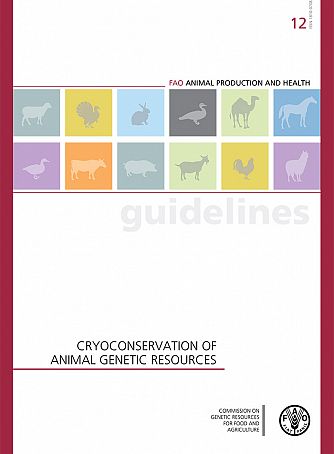
Cryoconservation of animal genetic resources
21 September 2017
The guidelines describe, in logical chronological order, the process of establishing a programme for cryoconservation of animal genetic resources, starting with the process of confirming the decision to implement a cryoconservation programme.
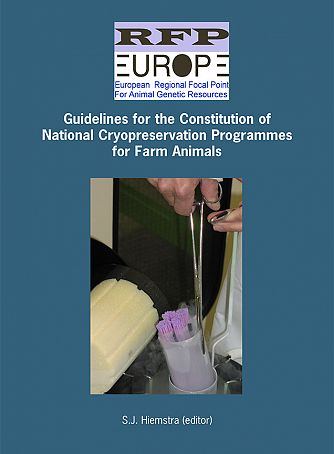
GUIDELINES FOR THE DEVELOPMENT OF MATERIAL ACQUISITION AGREEMENTS (MAA)
The aim of this document is to help Genebanks in the process to develop MAA for Material intended to be stored in a Genebank for conservation, sustainable use, research and development of Animal Genetic Resources. These guidelines provide a potential set of elements, which could be incorporated in a MAA.
They could be considered as “tool box” to facilitate process of developing own MAA to be used by a given Genebank.
GUIDELINES FOR THE DEVELOPMENT OF MATERIAL TRANSFER AGREEMENT (MTA) FOR CONSERVATION AND BREEDING
The aim of this document is to help Genebanks in the process to develop a MTA for Material intended to be employed for conservation and breeding. These guidelines provide a potential set of elements, which could be incorporated in the MTA. They could be considered as “tool box” to facilitate process of developing own MTA to be used by a given Genebank.
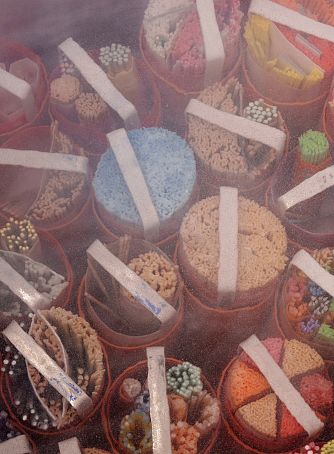
Guidelines for the development of national animal health regulations for material intended to be kept in gene banks
These guidelines aim to strengthen capacities in meeting animal health protection requirements while promoting the conservation of animal genetic resources.
The document is an output of an Ad Hoc Action let by Fernando Tejerina (Spain) with the help of the EU Reference Center for Endangered Animal Breeds.
GUIDELINES FOR THE DEVELOPMENT OF THE MATERIAL TRANSFER AGREEMENT (MTA) FOR RESEARCH
The aim of this document is to help the Genebanks in the process to develop a MTA for Material intended to be employed for conservation and breeding. These guidelines provide a potential set of elements, which could be incorporated in a MTA. They could be considered as “tool box” to facilitate process of developing own MTA to be used by a given Genebank.
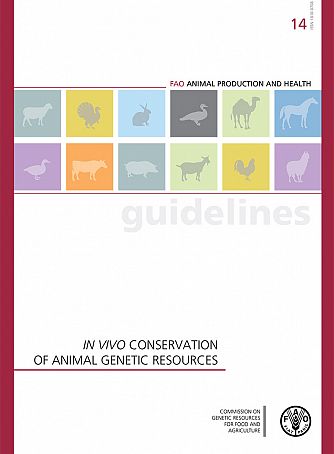
In vivo conservation of animal genetic resources
21 September 2017
In vivo conservation encompasses a range of actions that can be taken to ensure the survival of livestock breeds or populations that are threatened with extinction.
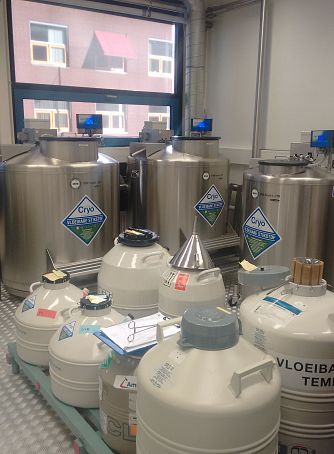
Livestock Genebanks Peer Reviews
Observations and conclusions based on one cycle of three animal genebanks peer reviews
Within the H2020 GenResBridge project a system of peer reviews has been set up aiming to improve the quality of European genebanks by having the experts of these genebanks visit each otheR. Reviewers provide recommendations to the hosting genebank.
A pilot of these genebank peer reviews is being organised in the second half of 2021, involving the French national Cryobank the Dutch national genebank at Centre for Genetic Resources, the Netherlands and the Slovenian national genebank ,Slovenia focussing on the animal genetic resources (AnGR) collections.
The reviews were held in 2021 on September 13th and 14th in France, September 15th and 16th in the Netherlands and on October 5th and 6th in Slovenia.
The global peer review report is available below, and the invidual country reports here:

Practical recommendations for the developpment of genebanks
Various initiatives have focused on strengthening ex situ conservation activities across Europe. However several studies pointed out that many breeds in European countries have either no or insufficient material in genebanks.
The Ad Hoc Action “Strengthening national capacities towards the development of a
national Gene Bank strategy” main objective was utimately to define solutions and priorities to support national efforts towards the development of a national cryo-conservation strategy.
The current set of guidelines is based on the information collected and analyzed through this AHA. It aims at training actors to adopt good practices in ex situ conservation and contains practical recommendations for the development of genebanks. It can support relevant activities and initiatives in European countries by providing practical examples of solutions to relevant problems and gaps.
These guidelines are based on actions already implemented and could be therefore directly used in
similar cases, as proposed in the recommendations, or by creating initiatives based upon the original
models.
